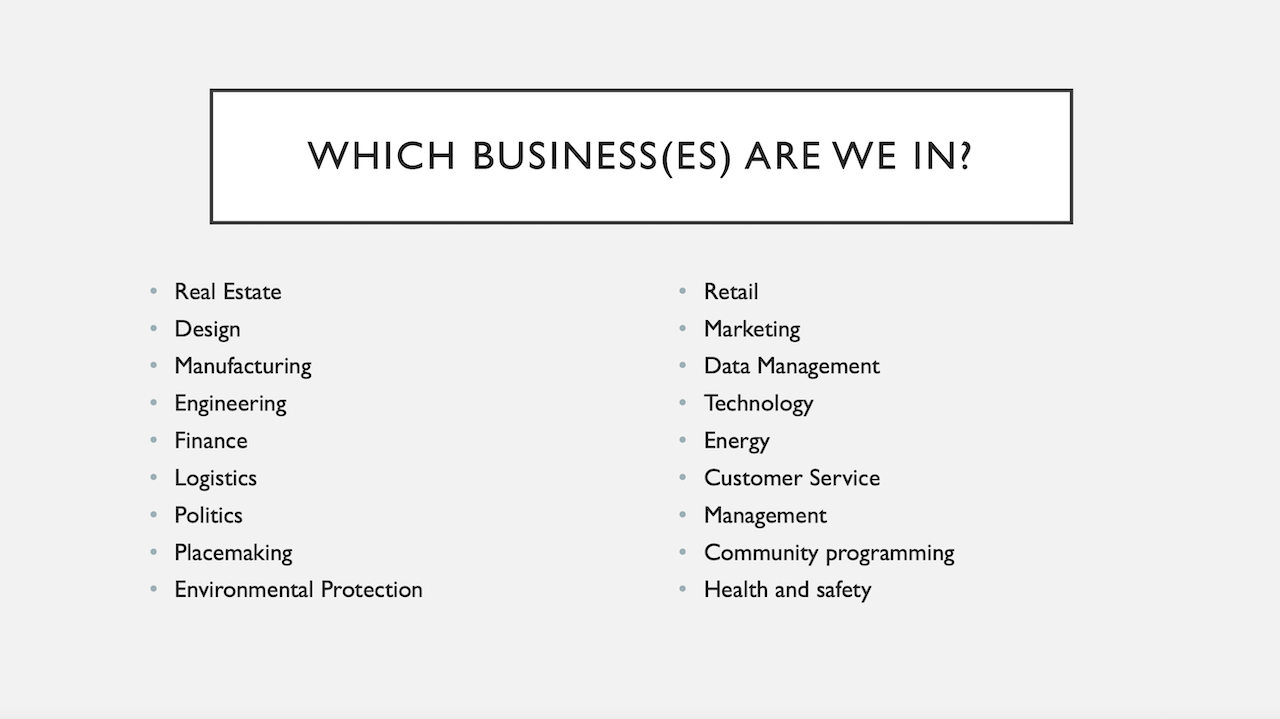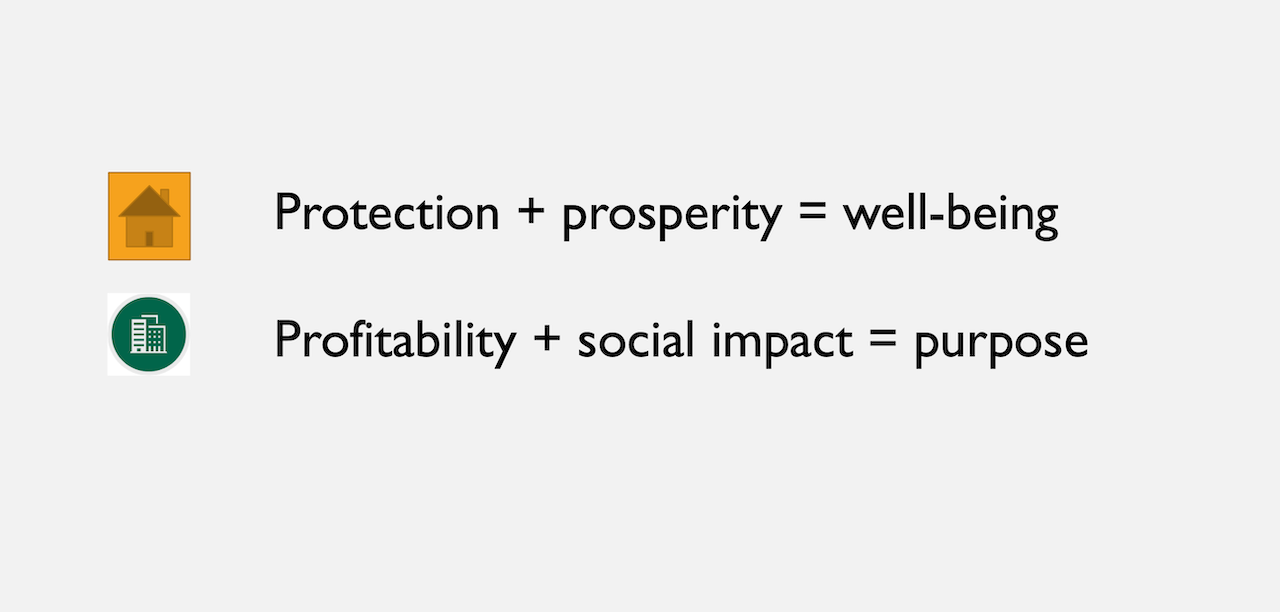Technology
Core Competency Reset: Focus on Customers And Completions
VUCA times -- volatility, uncertainty, complexity, and ambiguity -- call for extraordinary commitment to where your team excels at creating the most value, and tapping outside capability to solve for the rest.

The bottom line.
The term apparently emerged in first usage in 1830, or 1831, or ’32. You’d have to think, though, that long before that time its clear, constant, timeless meaning was a big deal. And probably, for at least that long, the simple, elegant, and profound meaning of the bottom line predictably rises in importance in dicier and more chaotic moments than when everything seems to chug along as expected.
Moments like now, for instance.
People call our current economic and business backdrop a VUCA environment – the acronym stands for Volatility, Uncertainty, Complexity, and Ambiguity. Can you relate?

Now, underlying all four “approaches” to solving for VUCA, a single, non-negotiable question requires a straight, operational answer, especially for homebuilders and residential developers in the current business climate. It’s this: What business are you in? For homebuilding and residential development organizations, this is not a fuzzy exercise in theory. Rather, it’s about “present-proofing” businesses to weather turbulence. To stay resilient, agile, and nimble, getting to the bottom line means leaders and principals adopt a laser sharp focus of time, energy, money, and people resources exclusively where they create the most value. It also means they stop investing focus and where they create less and less value.
Builders today are faced with more challenges on a daily basis than in any other time,” notes Brad David, executive VP of development and construction at Snap.Build, a proptech solution that bridges gaps between builders and lenders. “From compliance issues to supply chain and logistics challenges to managing cash flows, Snap.Build’s ever evolving technology allows builders to focus on the aspects of their business that need the most attention.”

Core Strengthening
That’s easier said than done. When you step back and look at what most production homebuilding and development firms do, a complex matrix of business activities surfaces for every new neighborhood or subdivision in the portfolio. Here’s a probably-incomplete snapshot of all the lines of business and technical expertise builders engage in on a day-to-day basis to secure and sustain success.

In a context where resources – financial, time, people, materials, and land – are all more constrained, scarce, and costly than they were for more than a decade up until the Federal Reserve’s monetary tightening strategy undertaken starting last Spring, trying to “do it all” is a recipe for trouble.
Priority Short-List
Builders and developers who’ve been making a go of it in Spring 2023 are doubling down tactical and operational execution on a finite few “highest” priorities:
- Strike price and incentives – rate locks, mortgage buydowns, and closing cost reductions -- focus to drive pace
- Operational excellence to capture waste/reduce input costs and reduce build-cycle
- Customer focus to keep cancels low, increase customer satisfaction
- Begin longer-term development of new models and locations that address and narrow affordability gap
These challenges emphasize the need for focus on core competency vs. allowing time-consuming, non-expertise areas to preoccupy strategic and operational bandwidth. The simple idea is to do only what produces value, and stop doing what customers do not willingly pay for.
One of the core benefits to the Snap.Build platform is the opportunity that we give to our builders to focus on building houses rather than the time intense responsibilities like accounts payable, data entry, document gathering, i.e. lien waiver collection, etc.,” says Snap.Build’s Brad David. “Our platform removes a significant time burden and allows team members to prioritize other day to day challenges.”
The complexity most homebuilding firms normally tolerate includes juggling dozens of disciplines and lines of business that require technical proficiency, but they often lack strong skillsets and bandwidth to do well. This kills efficiency, and shrinks the time and focus they need to generate the most value where they’re highly skilled, wise, and road-tested through up cycles and down.
- Product
- Pricing
- Location
- Matching to customers
- Motivating talent to excel
The Bottom Line
Going back to the most basic of all questions homebuilders and developers may need to triangulate around to both “present-proof” their business and gain entrée to a vastly promising future, answers that blend the five bullet-points above might come down to two simple, basic streams of value creation. One addresses customer value; and the other is a bottom line commitment to team member and talent value creation:

Many homebuilding and development organization owners and principals we’ve listened to across the years crave opportunities to re-flow their business focus from time-suck minutia of focus on managing all the moving parts of day-to-day finance, accounting systems and devote their talent and energies to sustaining focus on hand-holding customers through the buyer’s journey and cultivating excellence among operational team members.
The Snap.Build platform provides our builder clients with an end-to-end fintech solution focused on accounts payable and the myriad tasks associated with that aspect of the homebuilding process,” David says. “Our builder clients rely on the dependability of the processes that our platform provides, and they also know that the technology is continually being developed and improved upon to match the challenges that they face. For example, by providing our builders with the ability to pay their vendors as fast as anyone in the industry, we are helping our builders of all volume sizes level the playing field.
Further, our builders are able to allow team members to focus on other critical parts of their businesses such as product development and refinement, value engineering to improve profitability, and their overall customer experiences.”
Ultimately, those bedrocks of bottom line value creation – sanctuary and well-being for homebuyer and rental customers, and purposeful opportunity for team members – underlie both present-proofing priorities and future-proofing profitability. If 2023 intensifies focus on agile tactics and nimble responsiveness, 2024 and beyond are already calling for strategic investment in a “next normal” affordability and access.
As the industry continues to wrestle with the challenge of building more affordable housing stock, we are addressing one of the fundamental components of that solution, speed,” David says. “Speed as it relates to build times and speed as it relates to payment cycle times. Our platform allows builders to build as fast as they want, unencumbered by the traditional draw processes. Our builders are able to negotiate more aggressive pricing strategies with suppliers and sub-contractors based on the reliability of our payment processing and speed of delivery. Ultimately those cost savings can be transferred to more competitive pricing.”
Snap.Build provides builders with funding for residential construction projects. Snap.Build offers a non-recourse loan structure, competitive rates, and efficient loan closing.
MORE IN Technology
How A Broken Furnace Led To An Innovative New Power Solution
With new and emerging Federal and state energy credits that homebuilders and residents can tap into, the system nets out to an expense win on both fronts.
Ground Control: Creating A Digital Marketplace To Move Dirt
A $100 billion-a-year lending pool to acquire and develop the ground for homesites partially supports a parallel universe $50-billion addressable market that begs for a solution to a pain point: moving dirt.
Tapping Linda Mamet As EVP, Tri Pointe's Tech-Fueled Future Accelerates
"We can now focus fully on ideas like a single source of truth. This means holistic integrations among our platforms – where information moves meaningfully in real-time, back-and-forth between what the customer is doing and what we are doing internally." -- Linda Mamet, EVP, Tri Pointe Homes


